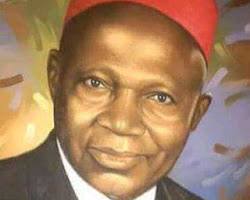By Hussaini Ibrahim Sulaiman
Governor Abba Kabir Yusuf of Kano State has called on Nigerian politicians to emulate the political philosophy and legacy of the late Malam Aminu Kano, particularly his unwavering commitment to the welfare of the masses and vulnerable citizens across the country.
The governor made the call on Thursday during the 23rd Annual Symposium held at the Mambayya House in Kano to commemorate the 42nd memorial anniversary of the late nationalist and political icon. The event, themed “The Politics of Tax Reforms in Nigeria: Expectations and Realities,” was organized by Bayero University, Kano (BUK).
Represented by his deputy, Comrade Aminu Abdussalam Gwarzo, Governor Yusuf said Aminu Kano’s legacy remains a guiding light for genuine political leadership and pro-people governance in Nigeria.
He reiterated his administration’s commitment to following in Aminu Kano’s footsteps, particularly in the education sector. “Since the inception of this NNPP-led government in Kano, we have adopted a holistic approach to overhauling the education sector,” he said.
According to him, Kano State stands out nationally for allocating 31 percent of its budget to education—surpassing the UNESCO-recommended benchmark. He noted that the state government has embarked on massive renovations of primary and secondary schools across all 44 local government areas, aiming to reduce out-of-school children by 50 percent and to create a conducive learning environment that is affordable and accessible to all.
The governor also applauded the Northern Governors Forum and traditional rulers for resisting aspects of the tax reforms that, according to him, contradict the cultural and religious values of the northern region.
Earlier, the Vice-Chancellor of Bayero University, represented by Deputy Vice-Chancellor Prof. Haruna Musa, stressed the importance of honoring Aminu Kano’s contributions to Nigeria’s democratic journey. He described the symposium as a platform to reflect on how Nigeria can build on Aminu Kano’s ideals in today’s political and economic landscape.
Speaking on the symposium’s theme, Prof. Musa acknowledged that the ongoing tax reforms could potentially improve citizens’ well-being. However, he criticized the recent increase in Value Added Tax (VAT) from 7.5 percent to 10 percent, cautioning that it may worsen the economic burden on ordinary Nigerians.
The symposium brought together academics, policymakers, and political stakeholders to discuss the evolving challenges of governance, taxation, and inclusive development in Nigeria.
